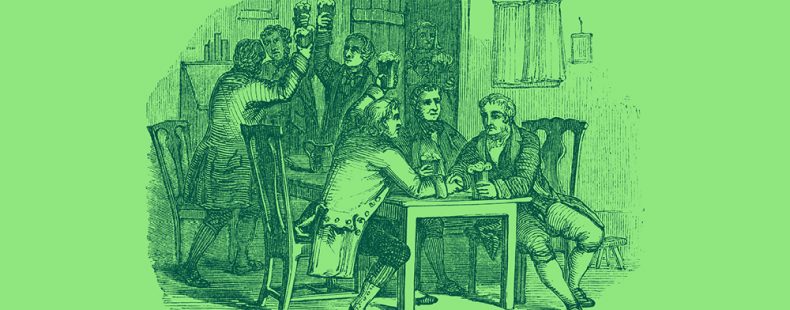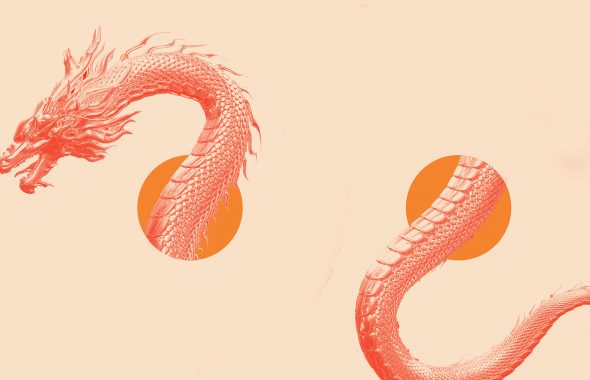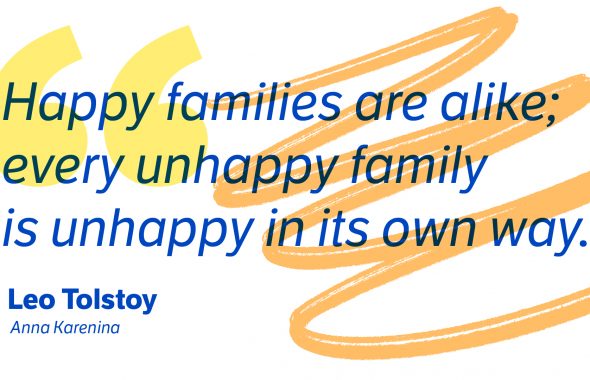New Year’s Eve is full of traditions that are easy to understand. Counting down the seconds until the day the calendar changes, for example. Others are a little less straightforward. Case in point: singing “Auld Lang Syne”—or at least humming along while it plays on TV in the background.
Don’t blame yourself if you don’t know the lyrics despite the song making the rounds every year. The words auld lang syne literally mean “old long since,” though in practice it means “old times, especially times fondly remembered,” as well as an “old or long friendship.” It’s from the Scots language, and the expression was first recorded in 1660–1680.
But why do millions of people sing it on New Year’s Eve every year? It all started with Robert Burns, the national poet of Scotland.
When was “Auld Lang Syne” written?
Burns wrote his “Auld Lang Syne” version—the one that we’ve all come to know (or at least kind of know)—in 1788 and published it in 1796. Since the first known recording of the expression came about more than a century earlier, it’s clear it wasn’t an entirely new concept.
Burns may get the credit for “Auld Lang Syne,” but no one knows who actually first wrote the poem. Burns himself didn’t claim the ditty. Instead, he said he took a fragment of a folk song that he’d heard and built more lyrics around it. It’s believed that the chorus and first stanza came from elsewhere, while the rest is a Burns original.
The chorus and first stanza, of course, are the bits that people typically know if they know any lyrics at all. Sorry, Rob.
Why is “Auld Lang Syne” a New Year’s Eve song?
The final day of the year is an apt time for looking back at the days past. That makes the theme and gist of “Auld Lang Syne” ripe for seasonal use. Still, that doesn’t fully explain why a centuries-old Scottish folk song became such a New Year’s Eve hit in America.
One of the reasons that “Auld Lang Syne” made it into New Year’s Eve lore is because of mass media. A popular New Year’s Eve broadcast on radio and then television hosted by Guy Lombardo and his band, the Royal Canadians, ran from 1929 to 1976. Lombardo came to be known as “Mr. New Year’s Eve” because of the broadcast.
Mr. New Year’s Eve himself is responsible for pushing “Auld Lang Syne” to the masses year after year on his annual show. If anything can make an 18th-century Scottish song popular in the modern era, it’s the power of television.
WATCH: How Do Other Parts Of The World Celebrate The New Year?
What do the lyrics mean?
Now that you know what the titular words mean and how it came about, what about the rest of the lyrics? You might as well know what the most popular lyrics mean if you’re going to sing the song before starting the new year. “Auld Lang Syne” is a relatively lengthy song in its entirety, but typically only the first verse and the chorus make the cut for New Year’s Eve celebrations.
The first lyrics, “Should auld acquaintance be forgot / And never brought to mind?” is a rhetorical question of whether you should forget about your old friends (which is not recommended). It goes on to talk about reminiscing “for auld lang syne,” or for fond memories of old times. The lyric “We’ll tak a cup o’ kindness yet” refers to raising a glass, while “and surely ye’ll be your pint-stowp / and surely I’ll be mine” is another drinking line that means, “And surely you’ll have your pint tankard / And surely I’ll have mine.” Because these lyrics do resemble English words, it can come as a shock to many casual singers that the rest of the song does not seem equally familiar.
Burns writes about running “about the braes,” which are hills, and “pu’d the gowans fine,” which means “pulled the daisies fine.” The lyrics “paidl’d i’ the burn / Frae mornin’ sun till dine / But seas between us braid hae roar’d,” mean that the singer has paddled in the stream from the morning until dinner, but the broad seas have roared between us. This is a reference to friends that were once close but now are far.
Finally, Burns writes “there’s a hand, my trusty fiere / And gie’s a hand o’ thine / And we’ll tak a right guid willy waught.” This means the singer is giving his hand to his trusty friend and the friend does the same. Then the references to alcohol come back as they drink a good-will drink to the days past.
If you understand it that far through, you’ll likely be in better shape than your companions come New Year’s Eve. For the ambitious, however …
Here are the full lyrics to “Auld Lang Syne”:
Should auld acquaintance be forgot,
And never brought to mind?
Should auld acquaintance be forgot,
And auld lang syne.
CHORUS:
For auld lang syne, my jo,
For auld lang syne.
We’ll tak a cup o’ kindness yet,
For auld lang syne.
And surely ye’ll be your pint-stowp!
And surely I’ll be mine!
And we’ll tak a cup o’ kindness yet,
For auld lang syne.
REPEAT CHORUS
We twa hae run about the braes
And pu’d the gowans fine
But we’ve wander’d mony a weary foot
Sin auld lang syne.
REPEAT CHORUS
We twa hae paidl’d i’ the burn
Frae mornin’ sun till dine.
But seas between us braid hae roar’d
Sin auld lang syne.
REPEAT CHORUS
And there’s a hand, my trusty fiere!
And gie’s a hand o’ thine!
And we’ll tak a right guid willy waught,
For auld lang syne.
REPEAT CHORUS
Should old acquaintance be forgot
And never brought to mind?
Should old acquaintance be forgot,
And long, long ago.
REPEAT CHORUS
And for long, long ago, my dear
For long, long ago.
We’ll take a cup of kindness yet
For long, long ago.
And surely youll buy your pint-jug!
And surely I’ll buy mine!
And we’ll take a cup of kindness yet
For long, long ago.
REPEAT CHORUS
We two have run about the hills
And pulled the daisies fine;
But we’ve wandered manys the weary foot
Since long, long ago.
REPEAT CHORUS
We two have paddled in the stream,
From morning sun till dine;
But seas between us broad have roared
Since long, long ago.
REPEAT CHORUS
And there’s a hand, my trusty friend!
And give us a hand of yours!
And we’ll take a deep draught of good-will
For long, long ago.














